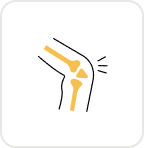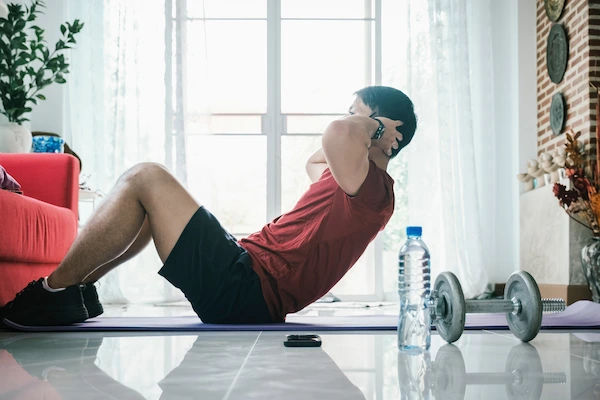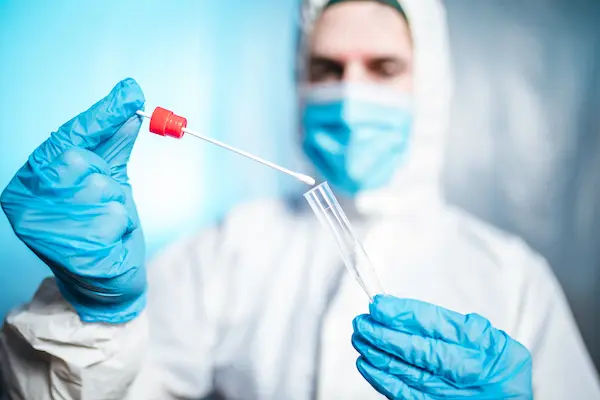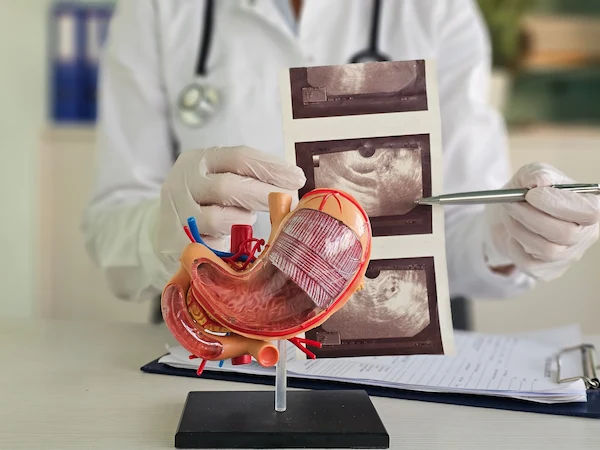Best Bone Density Tests for Women After 40
Worried about bone loss after 40? Learn how bone density tests like DEXA and vitamin D screening help detect early osteoporosis in women and improve long-term bone health.

Written by Dr. Rohinipriyanka Pondugula
Reviewed by Dr. Shaik Abdul Kalam MD (Physician)
Last updated on 9th Sep, 2025

Bone health is a vital component of women’s overall well-being, especially after the age of 40. As women approach menopause and beyond, the risk of bone thinning and fragility increases significantly due to declining oestrogen levels. This decline often goes unnoticed until a fracture occurs. That’s where a bone density test becomes invaluable. This diagnostic tool is a simple yet powerful way to assess the strength of your bones and detect early signs of osteoporosis.
In this article, we explore why bone checks are crucial for women over 40, what bone density tests involve, how vitamin D plays a key role, and which packages offer the best value, especially the ones available through trusted platforms like Apollo 24|7.
Why Bone Health Declines After 40
Women naturally begin to lose bone mass after their mid-thirties. Around the time of menopause, this loss accelerates due to a drop in oestrogen, a hormone that helps protect bone density. Without regular screening, women may be unaware that their bones are weakening until they experience a painful fracture, often from a minor fall or injury.
Risk factors for bone loss in women over 40 include:
- Menopause or early menopause
- Family history of osteoporosis
- Sedentary lifestyle
- Low calcium and vitamin D levels
- Smoking and alcohol consumption
- Certain medications (like corticosteroids)
Regular bone health assessments allow women to take preventive steps before complications arise.
What Is a Bone Density Test?
A bone density test, also known as a dual-energy X-ray absorptiometry (DEXA or DXA) scan, is a specialised imaging test that measures the amount of calcium and other minerals in a segment of bone. It is non-invasive, quick, and painless.
The most commonly tested areas include the hips, spine, and sometimes the wrist, regions that are particularly susceptible to osteoporotic fractures. The test produces a T-score, which compares a patient’s bone density to that of a healthy young adult.
T-score interpretation:
- Above -1.0: Normal bone density
- Between -1.0 and -2.5: Osteopenia (early bone loss)
- Below -2.5: Osteoporosis
This classification helps determine fracture risk and guide treatment decisions.
Why Women Over 40 Should Consider a Bone Check
After the age of 40, women experience natural hormonal changes that can silently weaken their bones. A timely bone check can help detect early signs of bone loss, allowing for preventive care before serious issues like fractures arise.
1. Early Detection of Osteopenia and Osteoporosis
- Bone loss often occurs silently. A bone check package for women can help detect early changes, allowing timely lifestyle adjustments, supplementation, or medications to prevent progression.
2. Fracture Risk Assessment
- A DEXA scan evaluates whether your bones can withstand minor impacts. This is crucial for preventing hip or spinal fractures, which can significantly affect mobility and independence in later life.
3. Menopause-Linked Decline
- Postmenopausal women lose bone rapidly. Monitoring bone density helps assess the rate of bone loss and whether hormone replacement therapy or other interventions are needed.
4. Tracking Treatment Effectiveness
For women already diagnosed with osteopenia or osteoporosis, periodic bone density tests are useful to monitor the response to treatment.
The Role of Vitamin D in Bone Health
Vitamin D is essential for calcium absorption, bone mineralisation, and overall skeletal strength. Women over 40 often experience reduced skin synthesis of vitamin D, especially with limited sun exposure.
Low levels of vitamin D are associated with:
- Poor calcium absorption
- Increased bone turnover
- Higher risk of falls due to muscle weakness
Therefore, a bone check package that includes a vitamin D test offers a more comprehensive view of bone health. Many diagnostic centres now include this add-on in their bone screening panels.
Top Bone Density Test Packages for Women on Apollo 24|7
Choosing the right bone health test is essential for early detection and prevention of osteoporosis in women over 40. Apollo 24|7 offers a range of reliable and convenient bone density test packages tailored to meet women’s specific health needs.
1. Bone Health Package - Women
This specialised package is designed to assess the key markers of bone health, especially in postmenopausal women. It often includes:
- Vitamin D (25-Hydroxy)
- Serum Calcium
- Phosphorus
- Alkaline Phosphatase
- Parathyroid Hormone (PTH)
This package is ideal for women experiencing symptoms like joint pain, backache, fatigue, or muscle weakness, early indicators of calcium or vitamin D deficiency and bone demineralisation.
2. Vitamin D Total Test (25-Hydroxy)
If you're not ready for a full panel but want to assess vitamin D status, this standalone test is a good starting point. It measures both D2 and D3 levels to give a complete picture.
This test is especially helpful for women who:
- Avoid sun exposure
- Have a vegetarian diet.
- Experience fatigue, bone pain, or frequent infections
3. DEXA Scan - Bone Density Test
The gold standard for diagnosing osteoporosis, the DEXA scan, directly measures bone density at key fracture-prone sites. While it may not be included in at-home packages, it can be booked at imaging centres through Apollo's network.
It is especially recommended if:
- You have a T-score below -1.0 from a previous test
- You are postmenopausal and over 50
- You have already had a fracture or are on bone-affecting medication.
Get These Tests To Get A Yourself Checked up
When Should You Get Tested?
Women should consider their first bone density test at:
- Age 40 to 45 if they have risk factors (e.g. family history, low BMI, thyroid disease)
- At menopause (around 45 to 50), as a baseline
- After 50, regardless of symptoms, especially if postmenopausal
Follow-up testing is typically advised every 2 to 3 years, or sooner if on medication for bone loss.
Preparing for a Bone Density Test
Here’s how to prepare for your test:
- Avoid calcium supplements for 24 hours before a DEXA scan
- Wear loose, metal-free clothing.
- Inform your healthcare provider if you have recently had any contrast imaging tests.
- Fasting is not usually required unless advised as part of a larger health package.
For blood-based bone screening packages, home sample collection may be available, making it convenient for working women or those with mobility concerns.
What to Do If Your Bone Test Results Are Abnormal
Abnormal results don’t always mean severe bone disease, but they do require attention. Your doctor may suggest:
- Increasing dietary calcium and vitamin D
- Starting supplements or prescription medication
- Adding weight-bearing exercises to your routine
- Addressing lifestyle risks (e.g. quitting smoking, limiting alcohol)
- Scheduling repeat tests to monitor progression
Early action can make a profound difference in maintaining bone health well into your later years.
Advantages of Choosing Apollo 24|7 for Bone Health Screening
Apollo 24|7 offers:
- Home sample collection for most blood-based bone check packages
- Access to certified labs and radiology centres for DEXA scans
- Fast digital reports with easy access via the Apollo app or website
- Consultations with specialists for test interpretation and follow-up
With the convenience of home testing and a wide network of Apollo Hospitals, women can proactively manage bone health from the comfort of their homes.
Conclusion
After 40, bone health should be a top priority for every woman. With the risk of osteoporosis and fractures increasing significantly after menopause, routine bone density tests serve as a cornerstone of preventive care. A comprehensive bone check package for women, especially one that includes vitamin D testing, can uncover deficiencies before they evolve into serious conditions.
Apollo 24|7 provides a range of trusted, accessible, and affordable options to screen for bone strength, calcium status, and vitamin D levels. Whether you're starting with a simple vitamin D test or booking a complete Bone Health Package, these diagnostic tools empower you to take charge of your bone health and ageing journey.







